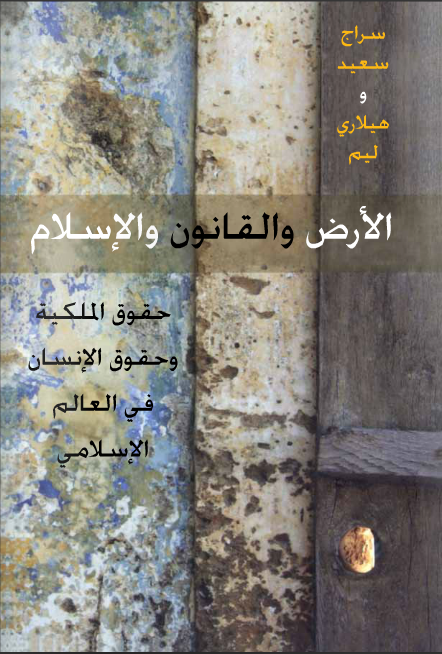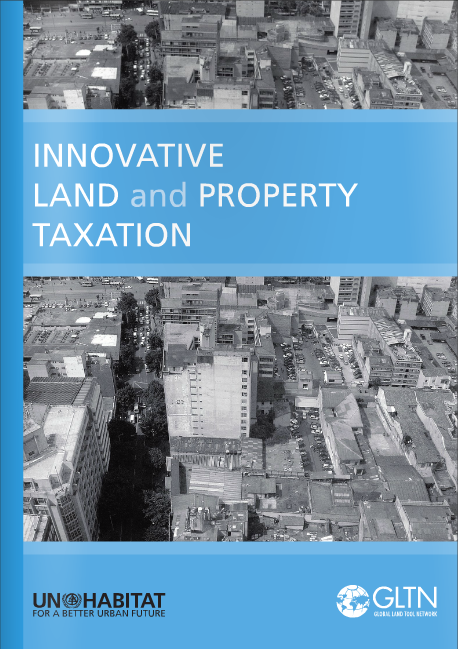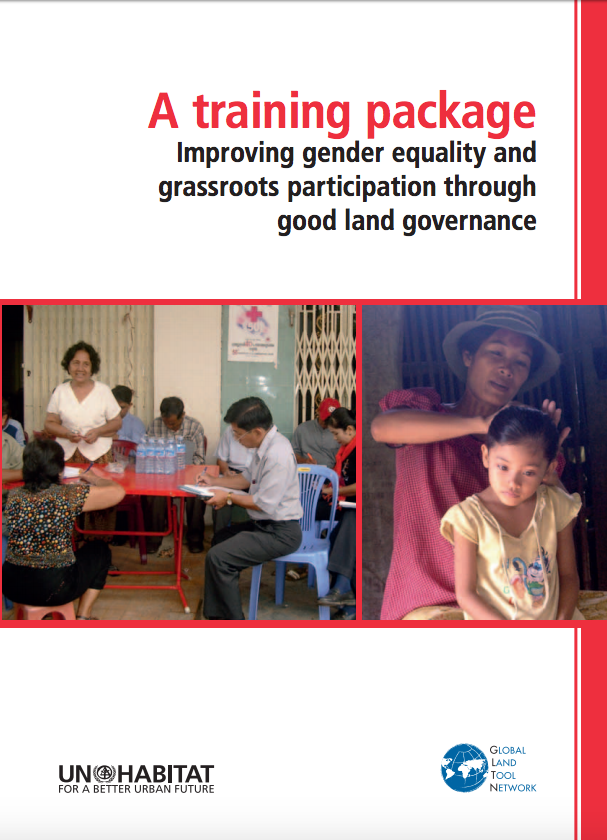Focal point
Location
The Global Land Tool Network (GLTN) is an alliance of global regional and national partners contributing to poverty alleviation through land reform, improved land management and security of tenure particularly through the development and dissemination of pro-poor and gender-sensitive land tools.
Secure land tenure and property rights are fundamental to shelter and livelihoods as well as the realisation of human rights, poverty reduction,economic prosperity and sustainable development.
The Global Land Tool Network (GLTN) main objective therefore is to contribute to poverty alleviation and the Millennium Development Goals through land reform, improved land management and security of tenure.
UN-Habitat through GLTN continues to work towards this with partners who include international civil society organizations, international finance institutions, international research and training institutions, donors and professional bodies.
Most developing countries use conventional land administration systems which cover less than 30 per cent of the country, leaving up to 70 per cent of citizens looking to informal and/ or customary approaches for their tenure security.
While there are many examples of good land policies, there are few policies that have been fully implemented due to lack of pro-poor, gendersensitive and largescale land tools. Further, conventional land titling approaches have largely failed to deliver their expected results since existing technical solutions are too expensive, inappropriate for the range of tenure found in developing countries, unsustainable financially or in terms of available capacity, and instead a range of land tenure options is more appropriate.
Core Values
Consequently, GLTN's core values and principles are founded in the development of land tools that are:
- Pro poor;
- Equitable;
- Sustainable;
- Affordable;
- Systematically large scale /scalable; and,
- Gender-sensitive, while taking into consideration:
- Good governance;
- Subsidiarity; and,
- The Continuum of Land Rights.
GLTN Objectives and Mandate
GLTN has developed a global partnership on land issues pulling together global partners, as well as many individual members. These partners include international networks of civil society, International Finance Institutions, international research and training institutions, donors and professional bodies. It continues to take a more holistic approach to land issues by working towards the following objectives:
- The establishment of a continuum of land rights, rather than just focus on individual land titling
- Improving and developing pro-poor land management, as well as land tenure tools
- Unblocking existing initiatives Assisting in strengthening existing land networks
- Supporting in the development of gendered land tools which are affordable and useful to grassroots
- Improving the general dissemination of knowledge about how to improve security of tenure
- Improving the general knowledge dissemination on the improvement of security of tenure
Resources
Displaying 246 - 250 of 286Islamic Principles and Land: Opportunities for Engagement - Arabic - 2011
This booklet arises from GLTN's work on Islamic dimensions of land which began in 2004 with the commissioning of research leading to Sait and Lim’s “Land, Law and Islam: Property and Human Rights in the Muslim World” (London: Zed Press/UN-Habitat, 2006). Based on this research a training course on "Islamic Land, Principles and Housing Rights in the Muslim World" has been produced in 2010. THi sis the first transaltion in Arabic in 2011
Islamic Principles and Land: Opportunities for Engagement
This booklet arises from GLTN's work on Islamic dimensions of land which began in 2004 with the commissioning of research leading to Sait and Lim’s “Land, Law and Islam: Property and Human Rights in the Muslim World” (London: Zed Press/UN-Habitat, 2006). Based on this research a training course on "Islamic Land, Principles and Housing Rights in the Muslim World" has been produced in 2010.
Innovative Land and Property Taxation
This publication, Innovative Land and Property Taxation, is derived from a 2009 Conference in Warsaw, Poland. It presents the ways in which land and property taxation policies, legal frameworks, tools and approaches to sustainable urban development have been experimented with around the World. Its key finding is the prominent role that land-based financing and local authorities play at the core of urban development.
A Training Package: Improving Gender Equality and Grassroots Participation Through Good Land Governance
This training package provides an introduction to the important, complex, and sometimes daunting theme of improving land governance as a means to enhance gender equality and grassroots participation in land matters. This training package is designed for professionals, working in the field of land, governance, grassroots participation and gender in public institutions or civil society organizations.
Urban Land Markets , Economic Concepts And Tools For Engaging In Africa
This Handbook introduces key economic and related concepts explaining the functioning of urban land markets. You will find in this Handbook tools for engaging in a critical analysis of conventional economics, particularly in the understanding of how African urban land markets work. Of great importance is the understanding of how land use, supply and demand unfold in African context. It provides a basis for strengthening urban policy in ways that enable poorer people in African cities to access well-located living and work spaces.









